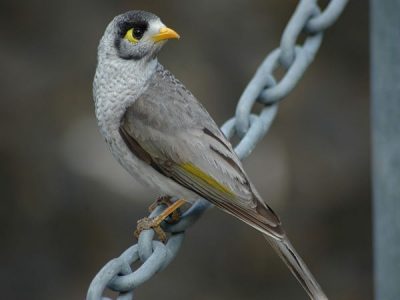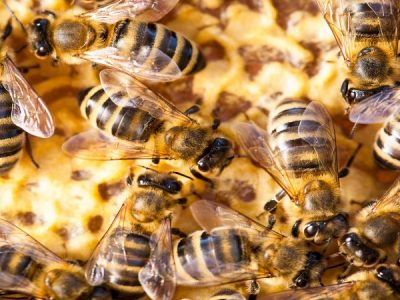Environmentally Friendly Treatments for Summer Garden Pests
Rest assured, we are always just a phone call away whenever you might need help with an infestation of household pests. But what happens when you encounter a smaller quantity of unwelcome garden pests? While they’re not posing a detrimental hazard to your inside living area, they are still causing havoc in the garden – and quite frankly, you’d just prefer to not have them around. So what do you do?
We care about the environment and the safety of your children and pets, so we have devised a list of top solutions to eliminate unwanted garden pests that are still kind on the environment and safe for your family.
The most important thing to remember is that a healthy soil is a key component in the prevention of pests and diseases. Nutrient-rich soil produces healthy plants that are far more resistant to attack from pests and diseases.
The Most Common Garden Pests
- Cutworms – attack young seedlings. They encircle the plant and cut through the stem just above soil level, leaving the wilting top to die. They are general feeders and will attack almost any kind of plant.
- Fruit Flies – are found in most soft fruits, including apples, quinces and avocados. The maggots of the fruit fly eat into the flesh of the fruit and promote rotting.
- Aphids – will eat most plants, shrubs and trees and particularly the tender young shoots. As aphids are sap feeders they cause a lot of damage in large numbers and can remove sufficient sap to kill off leaves and the growing tips. They are very important vectors of plant viruses and the honeydew they produce attracts a large number of other pests like ants and fruit flies.
- Ants – are attracted to the honeydew produced by the aphid and they transport young aphids from one location to another thereby spreading diseases carried by the aphids.
- Diamond-back Moth – eats cabbage, cauliflower, broccoli and Brussels sprouts. The small greenish caterpillars eat numerous holes into the plant leaves, which affect the strength of the plant.
- Stink bugs – damage succulent trees as they suck sap from new shoots and flower stems, causing shoots to weaken and die. The secretion is very acidic and can burn foliage. No organic sprays or treatments seem to be effective for these pests. The only effective method appears to be to place them in a jar of high alcohol content spirit.
Top Organic Solutions
Garlic has many positive properties that bugs do not like. Garlic water is an easy and simple way to rid your plants of pests. Many organic insecticides will contain garlic juice extract and canola oil. You can also place whole, peeled cloves of garlic directly into the soil that surrounds your attacked plants. Alternatively, add cloves into seed beds when planting new plants so that the garlic can penetrate the plant from a young age and always protect it.
Herbs such as peppermint, spearmint and pennyroyal naturally deter aphids and ants so they can be placed around larger plants that are susceptible to attack.
Iron phosphate is a natural inorganic material that is commonly used as a nutritional supplement. It is very popular for repelling slugs.
Fabric covers form the ideal insect barrier to protect your plants without using any insecticides. This translucent, white, porous polyester fabric still allows natural light and water to penetrate. These covers are ideal for assisting plants to grow past seedling phase, protecting them during pest breeding seasons, and guarding them against hail and frost.
Sticky Traps are made from a rigid material that is coated with a sticky substance that catches insects. These traps are ideal for flying insects, and less effective with crawling insects that are already on the plants.
Insecticidal Soap contains unsaturated long-chain fatty acids that dissolve the insects’ skin. Insecticidal soap sprays are commercially formulated products sold specifically for insect control. These soap sprays can unfortunately burn the leaves of younger and softer plants.
Insecticidal Oil is used to suffocate pests. To be effective, the oil spray must hit the pest directly. Dormant oil can also be used to kill insect pest eggs and disease spores on the bare branches of trees and shrubs during the dormant season. Spray early in the morning, before bees become active.
Bacillus Thuringiensis (BT) is a naturally occurring bacterium found in the soil. There are many different types, and some can be selected to kill a specific insect. When an insect eats a plant that has been sprayed with BT, the insect gets infected and stops feeding. The bacterium releases a protein that causes the pest to die within a few days.
Whatever method you opt for, always remember that insects form a vital part of nature’s ecology. They can certainly cause a lot of unnecessary damage in your garden, especially during breeding season. If you aren’t sure whether your little pest could be a more serious problem, get in touch.
Related article: Australian Plant Pests







